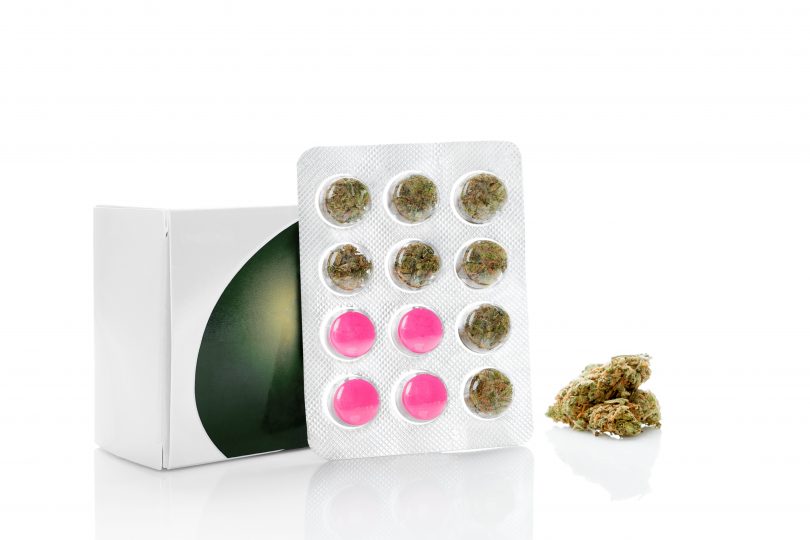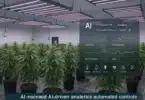There’s a lot of talk about synthetics in the cannabis industry, and for good reason, there are a bunch. But, what exactly does this mean? And why are we sometimes told synthetics are bad, and other times told they’re the only thing we should use? And how close is something like synthetic THC to its natural THC counterpart? The world of synthetics can be a confusing place, let’s take a look.
Synthetic THC can be perfectly fine, just ask the government about dronabinol the next time it tells you synthetics are categorically bad! We cover everything in the cannabis and psychedelics industry, and work everyday to get you the best stories out there. Check out the THC Weekly Newsletter to stay in-the-loop on what’s going on, and to get special access to deals on flowers, vapes, edibles, and more! We’ve also got great offers on cannabinoids, like HHC-O, Delta 8, Delta 9 THC, Delta-10 THC, THCO, THCV, THCP & HHC, which won’t leave a hole in your pocket. Take a look at our “Best-of” lists to find them, and enjoy responsibly!
What’s a synthetic?
First off, whether you promote them or are scared of them, the definition of a synthetic is the same either way. A synthetic drug is something that’s put together by a human using component parts, rather than being built by nature. A synthetic can’t grow in the ground, but something that does grow in the ground, can have a synthetic version of itself made. In a laboratory, the same compounds that make up the natural one, can be put together using different processes.
Are these processes safe? Sometimes, sure. But sometimes not as much, or with caveats that require chemicals to be used that can interfere with the final product. In essence, a synthetic version of something like THC is meant to be an identical version of natural THC. But that identical version might be tainted by chemical residue.
And then there are synthetic drugs that aren’t made to replicate anything that exists in nature. Some are just drugs created in a lab, like LSD, which though based off the ergot fungus, is its own compound, which isn’t a replication of anything. Or delta-10, which is very similar to delta-9, but which is only created in a lab. They are not exact replicas of something existent, meaning they only show up as synthetic drugs. Big Pharma also provides synthetic THC medications like Marinol/Syndros (AKA dronabinol) and Cesamet (AKA nabilone). While nabilone is said to be based on THC, but not identical, dronabinol is a direct replica of THC, with the exact same chemical formula and makeup.
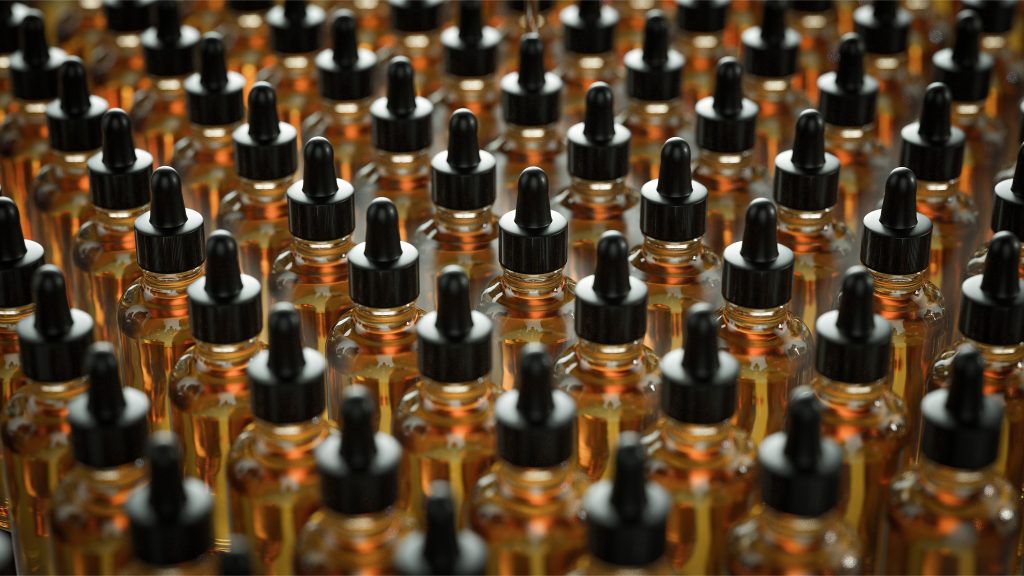
So the only versions of marijuana with any approval, are strictly synthetics, yet we are constantly told that synthetics are dangerous. And generally, when being told they’re dangerous, the pharma options are left out, and the drugs that get designated as synthetics are Spice, K2, and fake cannabinoids, which are put in a grouping with bath salts and methamphetamine, rather than with dronabinol, nabilone, or any opioid on the market.
Yup the entire opioids industry is all synthetic. The government isn’t handing out poppy flowers for people to smoke, they’re putting them on synthetic versions of opiates like hydrocodone and fentanyl. In fact, every pharma product is a synthetic, since plants can’t be patented, and would never end up in a pharmaceutical product. Kind of takes the air out of the argument against synthetics, when the argument comes from the medical industry and government, which together provide for synthetics only.
Is synthetic THC a big thing?
Yes, synthetic THC is widely used. Partly as a pharmaceutical drug through the use of dronabinol (and similar drugs like nabilone), partly because in some places there isn’t access to regular cannabis because of local government bans, partly because even when real cannabis is available in some places, its not as cost-effective as synthetic products, and partly because there’s a widely used black market that uses cheaper synthetics in products like vape carts and edibles, and often sells them out of fake dispensaries.
There was a time when I was abroad when all I could get was synthetic weed. It didn’t look like weed, but rather, like a handful of something picked up off the ground. Which I imagine had something sprayed on it. Most of the time it was perfectly fine, but a couple times I get very sick, which ended my use of fake weed. Do I blame this on whatever synthetic compound was in it? No, I think it was more likely related to random vegetation being used, which could have been fertilized, or have rat poison in it, or something else liable to make me sick.
Obviously, we all love THC, it’s the driving force behind weed. The first pharma cannabis product to come out, dronabinol, is synthetic THC, and this is because it’s understood that there is a strong and valid medical value. So regardless of whether its being used to induce the appetite of a cancer patient going through chemo, or used to make yourself super high after a long day, it’s a sought after compound, which explains the consistency of the weed industry, despite constant efforts to thwart it with regulation and smear campaigns.
What about the cannabinoids industry?
The cannabinoids industry is a great example of the popularity of synthetic THC products. The cannabinoids industry is a fringe, but currently stable, part of the cannabis industry that relies entirely on synthetics, both of already existent compounds, and of compounds that don’t exist in nature. Take delta-8 THC, for example. Delta-8 THC exists as a natural compound, but though it can be sourced directly from the plant, it’s available in tiny amounts only, which is not enough for production. Therefore, any delta-8 product you see, is synthetically made by converting either delta-9 or CBD to delta-8.
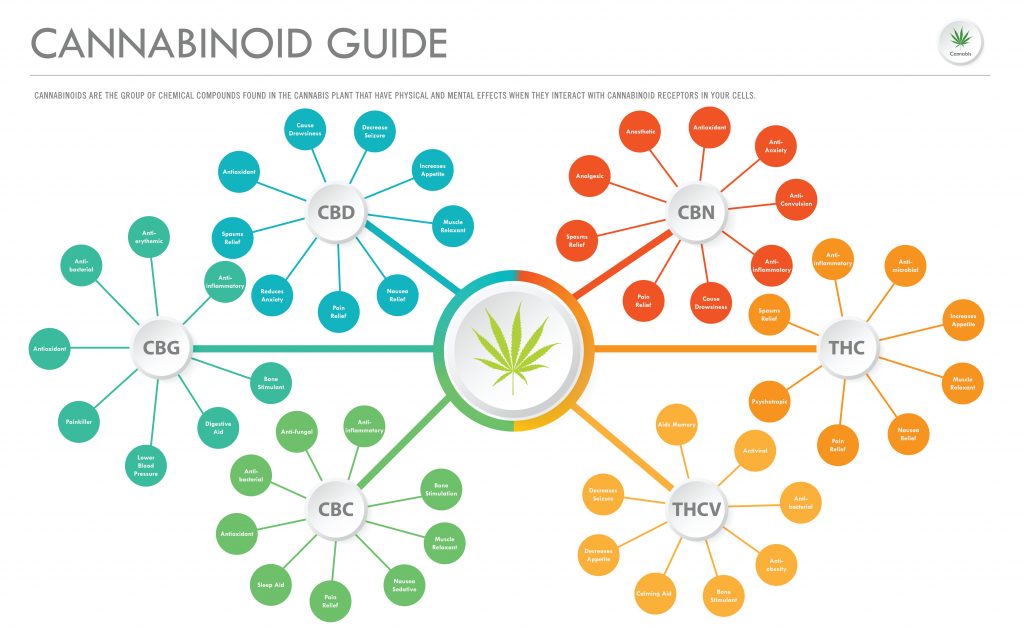
Delta-8 THC is therefore like dronabinol. They are both the same as what occurs in nature, but made in a lab, which requires the use of chemicals to force the conversion. However, in the delta-8 industry, the lack of regulation means that a consumer isn’t necessarily going to get what they think they are. So though the delta-8 sold is said to be ‘hemp-derived’, or ‘naturally-derived’, its actually synthetic, and since none of the companies producing it are regulated, its also not necessarily delta-8 at all. And that’s a problem.
This is true of the other cannabinoids as well, like CBG, HHC, THC-O, delta-10, and so on. Whether naturally occurring or not, they are only sold synthetically, even though they are said to be hemp-derived. Delta-9 is also being sold as hemp-derived, as a means of getting around regulation, when in reality, just means synthetic delta-9. What else is synthetic delta-9? Dronabinol! What gives dronabinol a leg up? It’s sure to be what it’s supposed to be, whereas cannabinoids sold in the cannabinoids market, have no such guarantee.
Are synthetics dangerous?
This is an interesting question, because if you want a sweeping answer of ‘yes’, then the government and big pharma are pushing dangerous medications. If you want a sweeping answer of ‘no’, then it validates what is actually a very dirty industry. Far as I can tell, the answer is somewhere in the middle.
The cannabinoids industry is dirty and disgusting, down to fake labs to give fake results to encourage trust among consumers. When people get sick from vape cartridges, it tends to be from something added in. And that’s one of the big problems with an unregulated market. Add in unsafe chemicals used for flavoring, coloring, stabilizing, or simply to create a stronger drug, and people can definitely get hurt. Just like when I smoked the fake weed that made me sick. It probably wasn’t the synthetic chemical meant to make me high that made me sick, but something bad added in there.
The two main issues that I see with synthetics industries, are 1) added chemicals that can make people sick, and 2) chemicals used in processing that might not be eradicated by the end, making for a tainted product. The positive of the government sanctioned options, is that they should at least be clean of added chemicals, though this says nothing for processing techniques.
Plus, if we decide the synthetics made by Big Pharma are totally cool, then there would be no reason not to allow the plant itself, since these synthetics are identical to, or closely based off, the plant. In fact, the biggest different between the regulated synthetics industry (Big Pharma) and the unregulated synthetics industry (delta-8 sellers etc..), is that one is government approved, and one is not. So one goes by regulation, and one does not. One gets taxed as a cannabis product, and one does not.
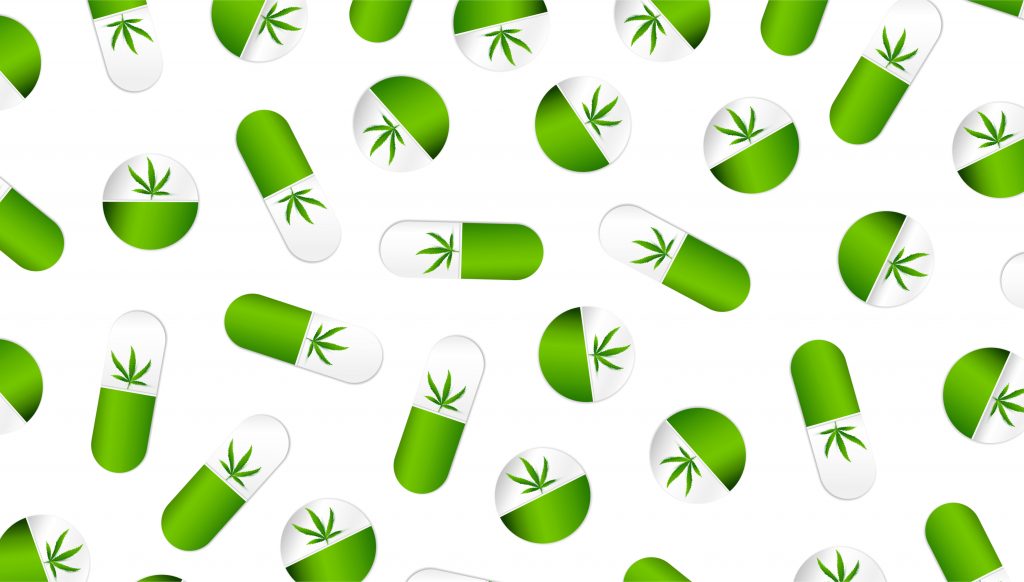
Recent news of Shopify banning the sale of unregulated cannabinoids looks to be the first major effort of the US government to thwart the industry. And considering how filthy it is, with fake products that don’t meet description, this isn’t necessarily bad. Realistically, most of us still have access to the plant, so we shouldn’t need synthetics anyway.
As far as answering the question of whether synthetics are dangerous, it really depends on who you ask. Cannabinoid sellers lie about their products being ‘naturally-derived’, which means they’re trying to avoid saying that what they’re selling is synthetic. Companies that outright lie are dangerous to begin with, and its hard to trust that their products are safe. On the other hand, the government loves spreading the line that synthetics are dangerous, while at the very same time promoting them through Big Pharma. So neither side is being particularly helpful in proving a point. It seems to me that the synthetics themselves aren’t necessarily bad, but that the industry around them, or the production techniques to make them, can lead to dirty products.
I find France vs the EU as a great story to highlight just how far governments will go to ban a natural product while selling a synthetic version of it. France lost because it couldn’t show the EU’s highest court how CBD was dangerous, which is probably because if it had tried to make that argument, the same argument could have been used against the country for selling the pharma version Epidiolex. France lost, making natural CBD legal all throughout the EU. If it had won, it would have barred the import of natural CBD from other EU countries, while selling the synthetic version, Epidiolex, in France.
Conclusion
I’ve used plenty of synthetic THC in life without dying, and so have many other consumers. Realistically, barely any of us have had an issue. This does nothing to abate safety concerns related to unwanted chemicals, or effects, but it does imply that there generally shouldn’t be a problem. It should always be remembered that there are two parts to this industry, a regulated one and an unregulated one. And whatever is said about safety, is generally guided by which market it’s a part of. That something like bath salts would be considered in any way similar to something like delta-8 THC, is a great reminder of how much information is skewed for consumers.
So just remember the next time the government tells you all synthetics are bad, that the government only approves synthetic medications! Perhaps we’d all be doing a bit better if the government saw fit to hand out poppies rather than fentanyl. In fact, opioids are a great place to see the idea of synthetic vs real, because no one seems to die from poppies, whereas 60,000+ die a year from overdoses on synthetic opioids, with that number on an upward trajectory. The government tends to say what’s convenient at the time to make tax money. If it really wanted to rule out synthetic cannabis, it would be ruling out Big Pharma as well.
Welcome everyone! Thanks for stopping by CBDtesters.co, the #1 web spot for the best independent coverage of the cannabis and psychedelics industry of today. Visit us whenever you can to stay on top of the exciting universe of cannabis and psychedelics, and sign up for The THC Weekly Newsletter, to keep abreast of all the news.
Disclaimer: Hi, I’m a researcher and writer. I’m not a doctor, lawyer, or businessperson. All information in my articles is sourced and referenced, and all opinions stated are mine. I am not giving anyone advice, and though I am more than happy to discuss topics, should someone have a further question or concern, they should seek guidance from a relevant professional.
Cannadelics: Beyond Psychoactive
Cannabis, Psychedelics & Consciousness Drugs

